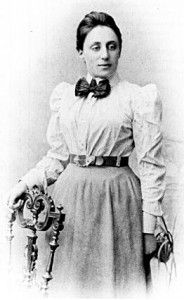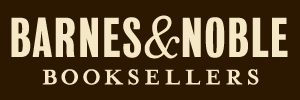-
How to Become an Intellectual is at once a
how-to manual and a glib walk through several thousand years of science and culture, complete with cameo appearances by everyone from Plato and Socrates to Freud and Marie Curie.
Available April 2012 in bookstores, as well as
on-line.
Sigmund Freud, Live! (Sorta)
May 7, 2012
 We live in an age of constant monitoring by tiny devices, where our every moment seems at risk of instant dissemination to the digital ether. As a result, it’s sometimes easy to forget how, for the significant portion of human history, the voices and movements of even our most illustrious figures went unrecorded. You might imagine Abe Lincoln reading the Gettysburg Address in deep, sonorous tones; but his actual voice (at least, based on the accounts of those who knew him) was apparently quite high and reedy.
We live in an age of constant monitoring by tiny devices, where our every moment seems at risk of instant dissemination to the digital ether. As a result, it’s sometimes easy to forget how, for the significant portion of human history, the voices and movements of even our most illustrious figures went unrecorded. You might imagine Abe Lincoln reading the Gettysburg Address in deep, sonorous tones; but his actual voice (at least, based on the accounts of those who knew him) was apparently quite high and reedy.
Those voices are lost to us, at least in terms of actual recordings. However, some icons of the late 19th and early 20th centuries lived long enough to commit their spoken words to a recording medium. As a result, we have a few seconds’ worth of Sigmund Freud, the father of psychoanalysis, discussing his methods. And for all you Cronenberg fans out there, I’m sorry to break it to you: the real Freud sounds absolutely nothing like Viggo Mortensen.
Intellectualism as Coping Mechanism
May 3, 2012
“Give me rampant intellectualism as a coping mechanism.”
A quote from “Fight Club” author Chuck Palahniuk; the team behind his personal Website runs an online hub for writers, LitReactor, which is well worth checking out.
Philip Levine on Poetry
April 25, 2012
An excellent interview in Tablet Magazine with U.S. Poet Laureate Philip Levine, covering everything from his blue-collar subjects to Dylan Thomas. I found myself drawn in particular to this quote, which features a nice little zinger at the end:
“The source of my poetry is my memory. I have a very good memory, and I remember a great deal. Coleridge commented that imagination has only the present and the past to work off of. Where else will it get its imagery? From things you actually see and remember. And I think much more from what you remember—what you heard, what you felt in the past. In the present, you’re just trying to write the fucking poem.”
Indeed.
Surely It Left Some Ancient Scholar Shaking in His Robe
April 17, 2012
“If you should erase me, I will slander you to Euripides. Keep off.”
– A warm note scrawled on a papyrus copy of Homer’s Iliad, from sometime between the 1st and 3rd centuries. Talk about an intellectual threat. (Euripides, along with Sophocles, was one of the great Athenian tragedians; why the note-scrawler chose him as an agent of literary vengeance and not, say, Homer is a valid question.)
Out in Bookstores
April 7, 2012
“How to Become an Intellectual” is now out in bookstores. (Shot taken at the Barnes & Noble in Union Square.) It’s also newly available as a B&N Nook e-book and an Apple iBook.
Great Moments in Intellectual Discourse #5
April 4, 2012
“Invention, it must be humbly admitted, does not consist in creating out of void, but out of chaos.”
– Mary Wollstonecraft Shelley, author of “Frankenstein,” and someone who (thanks to her life among the Romantics) knew much about inventiveness and chaos.
Noether and the Tragedy of Forgetting
April 3, 2012
How to explain the unfair obscurity of Amalie Noether (1882-1935)? Inventor of a groundbreaking physics theorem, praised by Albert Einstein as a major thinker, and yet largely forgotten by history. The New York Times piece on her life, published a few days ago, is worthy reading for anyone who wants to add another intellectual to their role-model list.
Great Moments in Intellectual Discourse #4
March 28, 2012
The Inevitable Kindle Edition
March 25, 2012
For your e-reading pleasure, Amazon now offers “How to Become an Intellectual” as a Kindle e-book.
“Are e-books intellectual?” someone jokingly queried the other day on our Facebook page. The answer is yes, an e-book is no less intellectual than its paper sibling. In fact, as discussed in Maxim 31 (“Carry E-Books on the Road”), a Kindle or Nook loaded with e-books can spare your spine the strain of carrying several hefty volumes while on the road. For anyone who makes a habit of toting more hardcovers than a library on wheels, an e-reader can be, if not a lifesaver, certainly a life-improver.
Fear and Loathing at the Book Reading
March 21, 2012
From Maxim 59, “Shun drinking at the reception or book reading”:
Event planners tasked with filling their receptions and book readings with crowds of eager attendees—and who need to do so without access to a Famous Person to appear as the headliner—have evolved one surefire method of ensuring success:
Offer an open bar, and stock it with pretty much anything. Wine remains a perpetual favorite at intellectual events. Whether cheap vino in a box, chemically indistinguishable from engine cleaner, or the good stuff from some quasi-mythic vineyard where each grape is ritually massaged and crushed beneath the delicate feet of virgins—people will line up to drink it down. And hopefully stick around for whomever speaks that night.
However, heavy drinking at the reception or reading can sometimes prove disastrous. A few too many glasses of wine, and the most reserved attendees start believing they’re the second coming of Richard Pryor: they launch into a joke, except they keep backtracking to the part when the horse first walks in the bar, and ten minutes later they’re still babbling to a group of listeners nearly willing to chew off their own arms to escape, coyote-style.
Don’t be that sort of event drinker.








